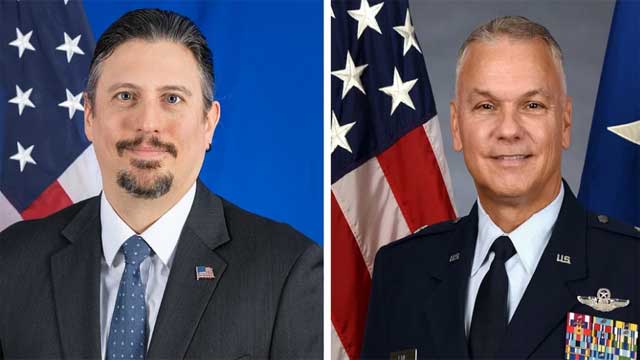A number of high-level delegations from the United States are expected to visit Bangladesh ahead of the next national polls. Of them, two delegations are scheduled to arrive in Dhaka this month.
The US state department’s coordinator on global anti-corruption, Richard Nephew, is supposed to reach Dhaka on Sunday night, while Brig Gen Thomas J James, director of strategic planning and policy of US Indo-Pacific command, will join a defence dialogue in Dhaka in the second half of August.
Besides, the assistant US trade representative for South and Central Asia, Brendan Lynch, is scheduled to visit Dhaka in the first half of the next month, to attend a meeting of the trade and investment cooperation forum agreement (TICFA) council.
According to diplomatic sources in both countries, Richard Nephew, who is considered as an advisor to US state secretary Antony Blinken, will discuss ways of cooperation to eradicate corruption and stop money laundering.
He will meet the Anti-Corruption Commission (ACC) chairman, foreign secretary, and other non-government organisations working on the issues.
A senior official of the foreign ministry said discussions are underway about participation of several delegations from both countries in regular forums in Dhaka over the next two months.
Among them, the defence dialogue and the TICFA council meeting are nearly finalised. A security dialogue is also supposed to be held here, but it is yet to be confirmed.
The official also said foreign secretary Masud Bin Momen is expected to lead the Bangladesh delegation in the security dialogue, while the US undersecretary for arms control and international security Bonnie Denise Jenkins will lead the US side.
Diplomatic sources in Dhaka noted that the bilateral cooperation between Bangladesh and the US has been multi-dimensional over the past decade, focusing on human rights and good governance, trade and investment, development cooperation, non-traditional security cooperation, and defence cooperation.
Both countries have collaborated closely in various areas, but there have been differences regarding human rights and good governance. It becomes evident through the US sanctions on the Rapid Action Battalion (RAB) and its seven former and current senior officers, and visa restrictions on individuals obstructing free and fair elections.
Asked about the visits, the spokesperson for the US Embassy in Dhaka, Bryan Schiller, said the embassy refrains from disclosing any information about a delegation's visit until their arrival in Dhaka or official announcements made from Washington.
He said the US attaches special importance to Dhaka in terms of bilateral relationship and it is evident through the visits of the high-level US officials. He also hoped that the trend would continue in the future.
Earlier, the United States announced a new visa policy for Bangladesh on 24 May, which stirred some concerns here. Later, Uzra Zeya, the US under secretary for civilian security, democracy, and human rights, came to Dhaka on a four-day trip on 11 July, accompanied by assistant secretary for central and south Asia Donald Lu.
Former foreign secretary and Bangabandhu chair of Delhi University, Shahidul Haque, also said the relation between Bangladesh and the United States is extensive and multidimensional. As the US has interest in the Indo-Pacific region, the importance of Bangladesh increased due to its strategic position in the Bay and changed geopolitical dynamics.
He also noted that values and human rights remain the base of US foreign policy and it considers the issues while maintaining bilateral relationships. It is nothing unusual to have different views on various issues. But both countries continued their communication and discussion at different levels.





